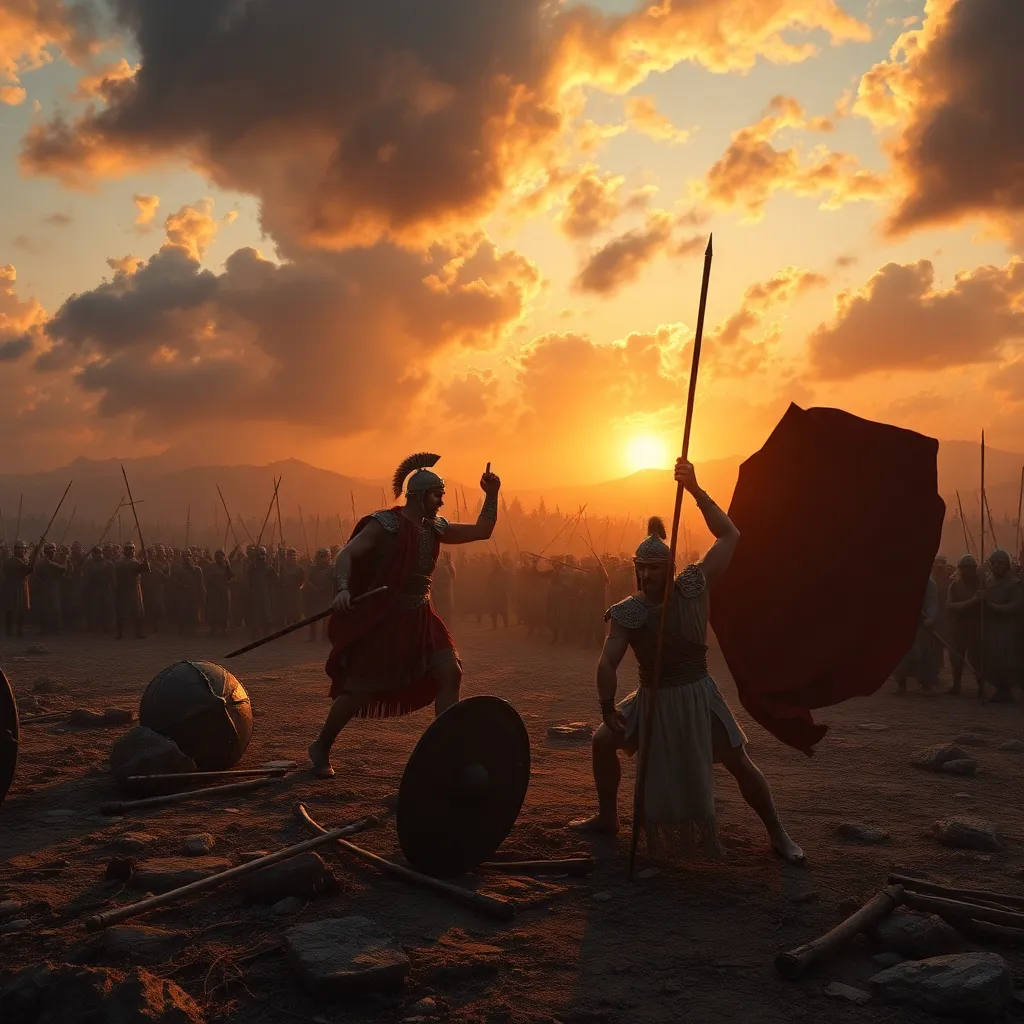The Trojan War’s Influence on Modern Literature and Media
I. Introduction
The Trojan War, a legendary conflict between the city of Troy and the Achaeans, has captivated the imagination of countless generations. Its origins are steeped in myth, with gods and mortals entwined in a narrative that explores themes of love, honor, and tragedy. The significance of the Trojan War transcends historical events; it serves as a cornerstone of Greek mythology and has left an indelible mark on literature and art throughout the ages.
This article aims to explore the profound influence of the Trojan War on modern literature and media, examining how its themes and characters continue to resonate in contemporary storytelling.
II. The Trojan War in Classical Literature
Key ancient texts, particularly Homer’s “Iliad” and “Odyssey,” are foundational works that narrate the events surrounding the Trojan War. The “Iliad” focuses primarily on the hero Achilles and the wrath that drives the Achaeans to battle, while the “Odyssey” follows Odysseus’s long journey home after the war.
Several themes and motifs emerge from these classical works, including:
- Heroism and the Code of Honor: The valor and moral dilemmas faced by heroes such as Achilles, Hector, and Odysseus.
- Fate and Free Will: The struggle between human agency and the predetermined will of the gods.
- The Human Condition: Exploration of love, loss, and the consequences of war.
These themes establish a framework for understanding not only the characters’ motivations but also the broader implications of conflict in human existence.
III. Adaptations in Modern Literature
The Trojan War has inspired numerous contemporary novels, each reinterpreting the ancient narrative through a modern lens. Notable works include:
- “The Silence of the Girls” by Pat Barker: This novel gives voice to Briseis, the concubine of Achilles, illuminating the female perspective often overlooked in traditional retellings.
- “Song of Achilles” by Madeline Miller: A retelling of the relationship between Achilles and Patroclus, exploring themes of love and loss against the backdrop of war.
- “Circe” by Madeline Miller: While primarily about Circe, this novel intertwines references to the Trojan War, showcasing its impact on the characters’ destinies.
These literary works draw thematic connections to current societal issues, such as gender roles, power dynamics, and the impact of war on individuals and communities. The characters from the Trojan War also find new life in modern storytelling, often appearing in novels, graphic novels, and young adult fiction.
IV. The Trojan War in Film and Television
The cinematic landscape has also been shaped by the epic tales of the Trojan War. Films like “Troy” and adaptations of “The Odyssey” have brought the ancient conflict to life for contemporary audiences.
In these adaptations, filmmakers often reinterpret the events and characters to resonate with modern viewers. For example:
- “Troy” (2004): This film presents a grand retelling of the Trojan War but emphasizes personal stories and romantic entanglements over the original epic’s focus on honor and fate.
- “The Odyssey” (1997): This miniseries adaptation captures the essence of Odysseus’s journey while incorporating modern storytelling techniques, making the narrative accessible to today’s audience.
The impact of visual storytelling is significant, as it shapes audience perception and engagement with the material, allowing for a re-examination of classical themes in a contemporary context.
V. The Trojan War in Theatre and Performance
Theatre remains a powerful medium for exploring the Trojan War’s themes. Modern theatrical adaptations have emerged that reinterpret the narratives for today’s stage. Noteworthy examples include:
- “Trojan Women” by Euripides: While an ancient play, many contemporary productions highlight its relevance in discussing the plight of women in times of war.
- “An Iliad” by Lisa Peterson and Denis O’Hare: This adaptation presents a one-man retelling of the “Iliad,” drawing parallels between ancient and modern warfare.
Contemporary playwrights utilize the Trojan War to explore modern themes such as trauma, displacement, and the consequences of conflict, showcasing the enduring relevance of these ancient stories.
VI. The Trojan War’s Symbolism in Popular Culture
The influence of the Trojan War extends beyond literature and film into various forms of popular culture, including music, art, and graphic novels. Key aspects include:
- References in Music: Songs often draw metaphors from the Trojan War, using its imagery to comment on love, betrayal, and sacrifice.
- Art and Graphic Novels: Artists reinterpret scenes from the Trojan War, exploring its themes through visual media.
- Political and Social Discourse: The Trojan War serves as a metaphor in discussions about modern conflicts, illustrating timeless human struggles.
The enduring legacy of Trojan motifs in pop culture demonstrates their capacity to engage with contemporary issues, making ancient narratives relevant to modern audiences.
VII. Critical Perspectives and Scholarly Analysis
Academic discussions surrounding the Trojan War’s influence are vast and varied. Scholars examine how different cultures interpret the Trojan War in modern contexts, providing insights into:
- The cultural significance of heroism and morality in the narrative.
- Variations in storytelling that reflect societal changes.
- The role of interdisciplinary approaches, combining literature, history, and cultural studies to enrich our understanding.
These analyses emphasize the importance of the Trojan War as a lens through which we can explore human nature, ethics, and our collective memory.
VIII. Conclusion
The Trojan War’s lasting legacy in literature and media is a testament to the power of storytelling. Its themes of love, honor, and tragedy continue to resonate in modern narratives, reminding us of the complexities of the human experience. As we reflect on the relevance of these ancient stories in contemporary society, it is clear that the Trojan War will continue to inspire artistic expressions for generations to come.
In a world where the challenges of conflict and human relationships remain pertinent, the Trojan War offers a timeless exploration of our shared humanity, ensuring its place in the fabric of modern storytelling.




